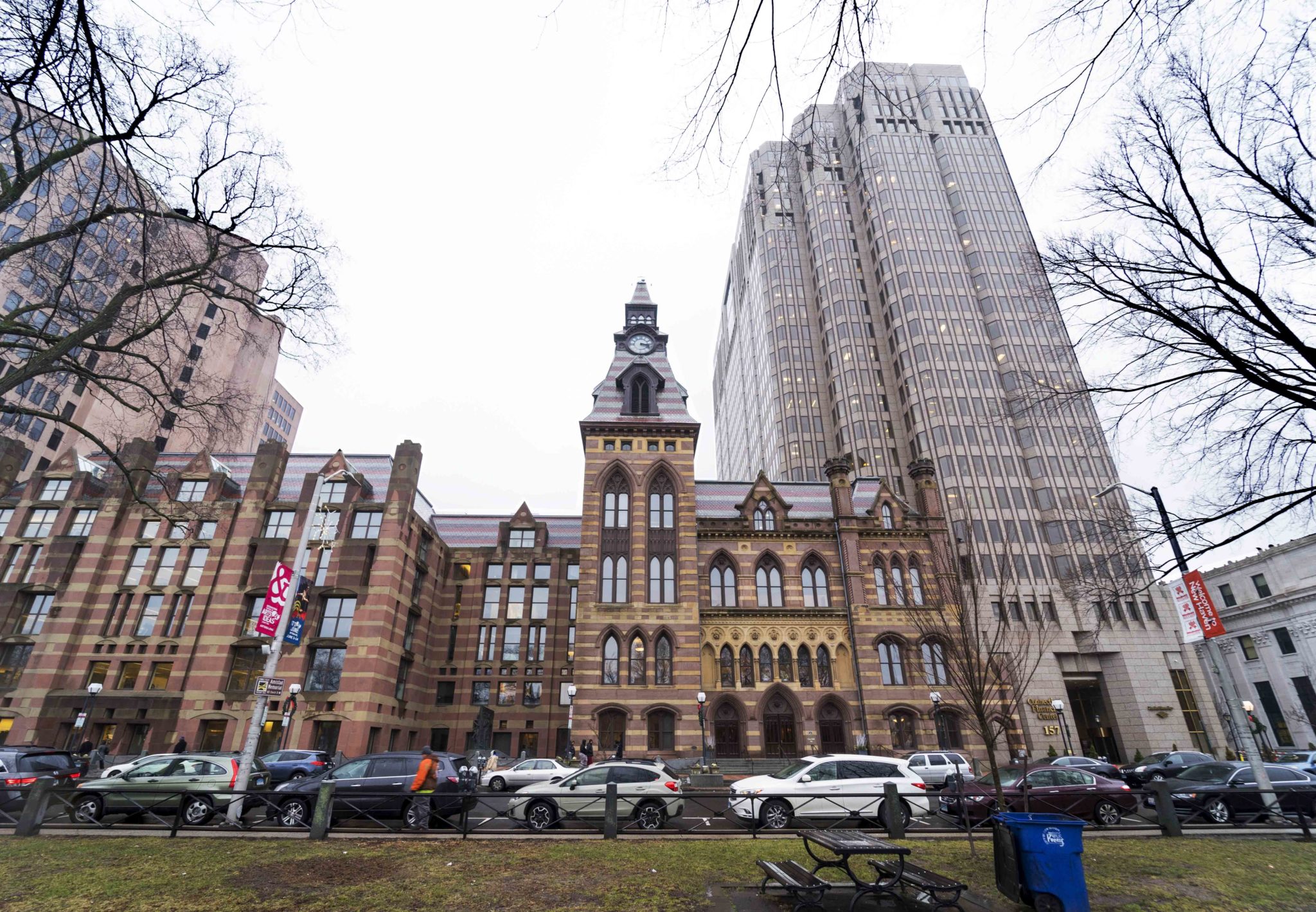
Nat Kerman
As business, school and everyday life moves online to limit the spread of COVID-19, the New Haven Board of Education held their first virtual meeting on Monday night.
At the public meeting — which was held in a Zoom meeting room — board members discussed the effects of coronavirus on New Haven Public Schools, including a heated debate over a recent City Hall decision to use Hill Regional Career High School as a medical shelter for homeless people who test positive for the coronavirus.
Last Wednesday, Mayor Justin Elicker announced the decision to use Hill Regional Career High School as an “isolation shelter” for those who are homeless and must remain in quarantine. He explained that 75 beds would be set up at the school and that the site would house those who exhibit symptoms that were not severe enough to require hospitalization.
“What this proposal does is increase safety to the city, by making sure that homeless individuals who do not have a place to self-isolate have the ability to self-isolate,” Elicker said at Monday’s BOE meeting.
Rick Fontana, the New Haven director of emergency operations, explained that a shortage of federally inspected and authorized shelters and pressing time constraints led to the decision to re-appropriate the high school.
“These are unprecedented times,” Fontana said. “[Hill Regional Career High School] was identified … and authorized to be used as a shelter. This is still a shelter, this just happens to have medical care going on inside it.”
Fontana added that those who are staying in the Hill Regional Career High School shelter will not be allowed to leave the facility while they are in quarantine.
Darnell Goldson — former president of the New Haven Board of Education and one of the board’s two elected members — was the most fervent in dissent. He introduced a resolution condemning the decision to use Hill Regional Career High School for medical care. The resolution — which the board ultimately voted against by a 5–3 vote — urged Mayor Elicker to reconsider the choice of location and noted that student and faculty belongings are still in the building.
Goldson’s resolution on Monday follows a petition he started on Sunday criticizing Elicker’s response to the COVID-19 pandemic. Goldson accused the mayor of “criminalizing illness” and taking away the rights of New Haven citizens, citing as evidence the decision to turn Hill Regional Career High School into a shelter.
Fontana responded to concerns that the school would not be properly cleaned after New Haven schools resume in-class instruction. During the meeting, board member Tamiko Jackson-McArthur expressed concerns that, given the airborne nature of the coronavirus, the cleaning of the school could prove particularly challenging.
The Centers for Disease Control and Prevention released guidelines on cleaning places that have been exposed to COVID-19, and Fontana said that investments have been made to prepare for the cleaning process — which, he said, lasts 72 hours, at most.
“That school will be cleaner than it was in a long time,” Fontana said.
New Haven Public Schools are closed indefinitely, and instruction is taking place remotely. During Monday’s meeting, Interim Superintendent Ilene Tracey said the decision to reopen schools will be made at the state level. Gov. Ned Lamont recently waived a requirement requiring that schools be in session for 180 days per school year.
Tracey added that, during a recent conference call with Connecticut superintendents, Lamont’s office confirmed that schools will be closed until April 20 for now.
As a result, New Haven Public Schools have been distributing laptops, transitioning from a mixture of online materials and physical study packets. This transition, Tracey said, was in part due to Lamont’s recent stay-in-place order, but also with consideration to recent surveys finding that 55 percent of 12,000 New Haven Public School families polled were without electronic devices.
Additionally, at 38 locations across New Haven, students who would otherwise receive meals at school are able to pick up prepared meals, which they must eat off-premises. Michael Pinto, the chief operating officer of New Haven Public Schools, said that over 3,000 meals were distributed to students during breakfast and lunch hours on Monday, describing the distribution of these meals as going “exceedingly well.”
The use of an online platform influenced Monday’s meeting, as community members were allowed to comment on board discussions in live time via the meeting room’s chat tool. On multiple occasions, Board President Yesenia Rivera told board members consistently speaking out of turn that she would mute their microphones if they continued their behavior.
The next meeting of the Board of Education is scheduled for April 13.







